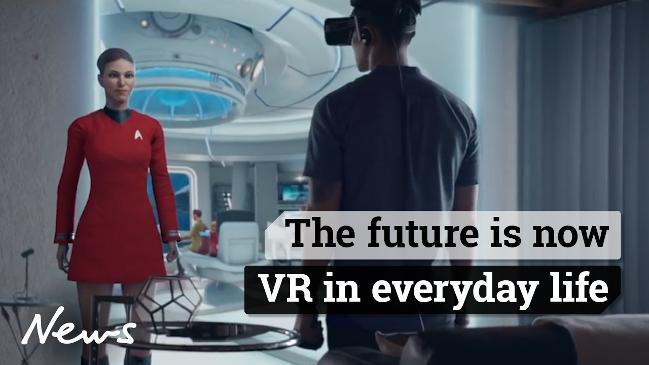Government reluctant to support gaming industry despite it being worth $3.7 billion in Canada
THE Australian Government is missing a massive opportunity by ignoring this multi-billion dollar global industry.

Gaming
Don't miss out on the headlines from Gaming. Followed categories will be added to My News.
BRACE yourself for what may be the most surprising thing you’ll read all week: apparently the Australian Government hates money and doesn’t want to make more of it from a multi-billion dollar global industry.
While a surprising turn of events, that appears to be the situation following the government’s response to the 2016 Senate Environment and Communication References Committee report Game On: More Than Just Playing Around, which made a number of important recommendations on supporting the fledgling Australian gaming industry.
A few weeks ago, the Commonwealth Government finally released its official response to the report, and its contents are, from a gaming perspective, disappointing to say the least.
The “Too Long, Didn’t Read” summary is that of the eight recommendations made in the report, only one (that the government support the development of ‘serious’ games for use in fields such as healthcare etc) has been actively supported — and even then with the addendum that they think it’s really an initiative the industry should pursue themselves — while the other seven have been rejected or merely “noted”, which realistically isn’t hugely different.
Given that a number of the non-supported measures related to tax breaks for game developers and the reintroduction of the now-defunct Australian Interactive Games Fund (AIGF), it’s clear there’s still quite a way to go before the local games industry can count on getting world-class support from Canberra.
We only have to look to Canada, which has considerable tax breaks, grants and support schemes in place for their now substantial $3.7b games industry, to see what Australia is missing out on.
The Interactive Games and Entertainment Association (IGEA) is one of the peak bodies representing Australia’s gaming sector and CEO Ron Curry said unfortunately, the organisation was not at all surprised by the Government’s response to the report.
“The original report unanimously recommended that the video games development sector be acknowledged, recognised and supported, but the official response was contrary to this,” he said.
“IGEA and our members were both disappointed and frustrated at the demonstrated lack of understanding about the video games industry despite the education and knowledge shared in the Senate Inquiry.
“The only positive comment/acknowledgment within the response was a nod to serious games which is a very important part of our industry with huge potential in areas such as health, education and defence. Despite the nod to serious games, there was no actual assistance, plan or agreement to support this important part of the industry, and again — sadly — came as no surprise to us.”

Mr Curry said the Australian screen sector (TV, film) received a lot of assistance from the Australian government and in turn they created and produced fabulous content for both local and global markets.
“As a result, there are many successful companies in the film and TV industry generating a lot of money and employment for the Australian economy,” he said.
“It is not our wish that any of that money is removed from the film and TV industry at all — rather, recognition that there are a lot of similarities between what is traditionally viewed as ‘screen industries’ and the games industry, such as the lead times to production, high degree of technical skills required, and overseas demand for content.
“Why not let us sit at the table alongside these other entertainment industries, access and grow the funds available and have the opportunity to develop original intellectual property, generate export dollars and tell Australian stories? It just makes sense.”
The government’s response to the report was a missed opportunity, Mr Curry said, and one that could have wider repercussions across the industry.
“The Australian Industry has received a lot of setbacks in our short history and limited support as we have mentioned, so for many existing studios, life won’t change greatly and they will continue doing what they do and make some great, highly acclaimed and commercially successful games,” he said.
“Our recent survey on the Australian game development sector shows there has in fact been some growth in revenue and employment which is fantastic, however, given the support that many other governments around the world provide to this sector — just look at Canada, the US, the UK and Poland to name a few.
“It makes it very hard for Australian studios to compete on a level playing field and even harder to retain these highly talented and skilled employees who have more employment options in the sector if they leave Australia.
“There will be those who were waiting on the outcome of this review to determine if they remain in Australia or take their expertise elsewhere. Additionally, larger offshore developers were looking at this result to see if Australia would be a competitive option to other countries to set up other studios. Disappointingly, that’s an opportunity missed for Australia.”

He said IGEA would love to have seen all the report’s recommendations implemented by realised things needed to be taken one step at a time.
“Given the tax concessions provided to other screen industries to create content here, we would like to see games businesses studios able to access the same sort of programs and establish Australia as a viable place to do business, create games, create original intellectual property and in turn contribute to the overall health of the industry ecosystem and the Australian economy,” he said.
“In short, we saw the recommendations as a suite of options that as a whole supported the wider development ecosystem.”
One of the key elements IGEA had been calling for was the reinstatement of the AIGF, although Mr Curry acknowledged politics may have had something to do with its rejection this time around; the AIGF was a Labor initiative and less likely to be supported by the Coalition government as a result.
“We (IGEA) viewed the AIGF as not as a hand out, but rather a hand up with many of the recipients having to reimburse the funds that were provided once their game had been commercialised,” he said.
“Many of the recipients were able to use those initial funds to develop a game, achieve commercial success, go on to make another game or two and in the process grow their studios.
“It seemed like a no-brainer given the success the AIGF had already had over such a limited period of time.
Mr Curry said overall, the government response to the report was a missed opportunity for now, but IGEA remained undeterred in their role.
“We will continue to work with the Federal government as well as the States and Territories to create an environment the supports the Australian games development sector and allows them to compete on a level playing field both locally and internationally,” he said.
Originally published as Government reluctant to support gaming industry despite it being worth $3.7 billion in Canada
